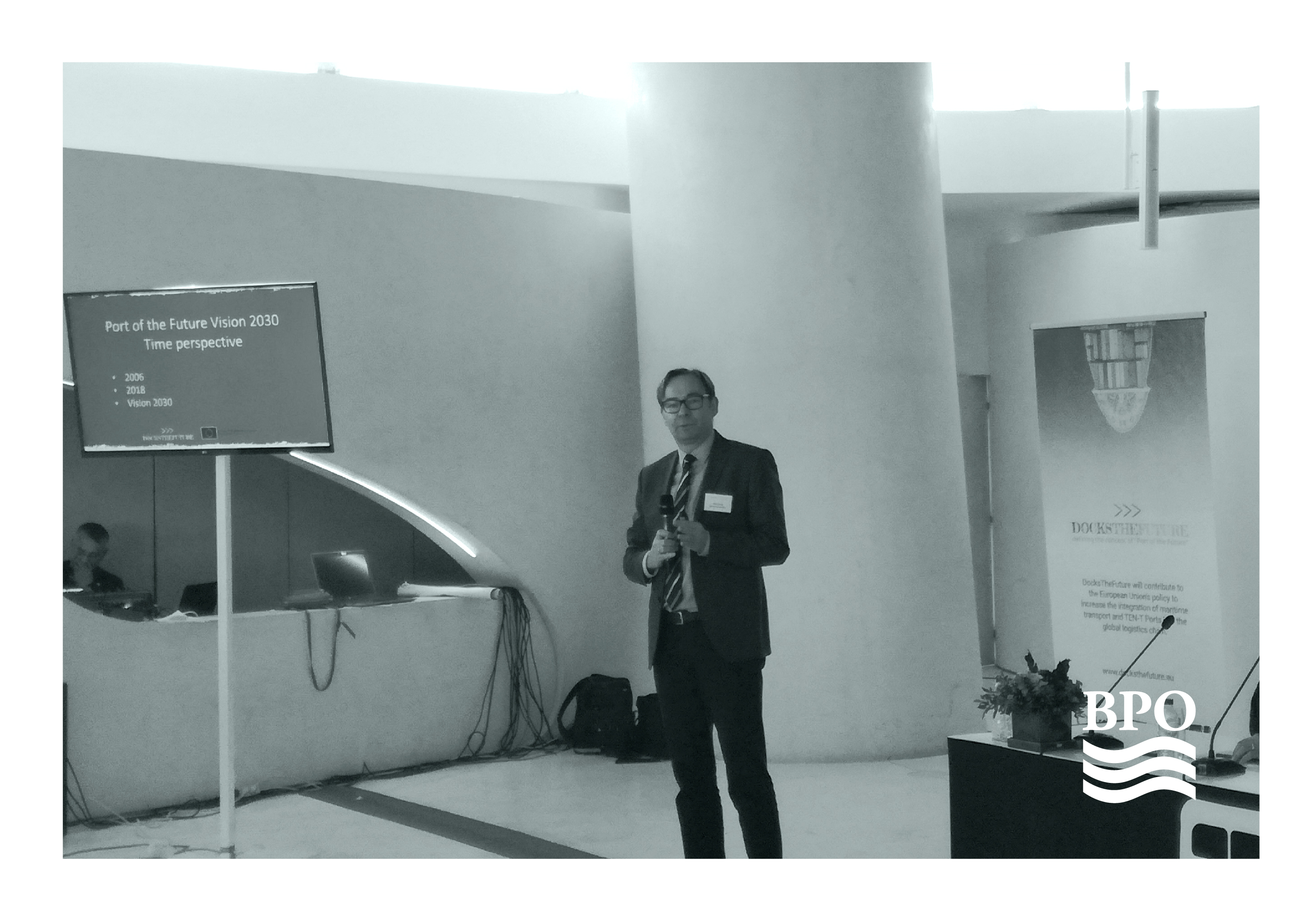Future ports’ vision at the DocksTheFuture workshop in Portugal
The Baltic Ports Organization was among the participants and speakers of the first series of DocksTheFuture workshops, held on 29-30 October, 2018, in Portugal. The meeting focused on defining the concept of the port of the future.
 The event featured a broad range of topics relevant to the discussion about the policies impacting future ports’ development in the EU. Digitalisation, sustainability, relations between ports and cities, infrastructure development, means of transport and accessibility, as well as cooperation and bridging R&D and implementation headed the talks. The BPO perceives these matters as high priority issues.
The event featured a broad range of topics relevant to the discussion about the policies impacting future ports’ development in the EU. Digitalisation, sustainability, relations between ports and cities, infrastructure development, means of transport and accessibility, as well as cooperation and bridging R&D and implementation headed the talks. The BPO perceives these matters as high priority issues.
The Baltic ports display continuous interest in the process of future TEN-T policy and port planning as the Baltic port sector is set to keep developing in the coming years. They are aware of the advantages the TEN-T network poses for their overall development rate and ongoing competitiveness.
Topics discussed during the event also tied into the BPO’s role in maintaining the Baltic Sea region’s status as leader in the implementation of sustainable solutions. Over the years, Baltic ports gathered vast amounts of experience in the area of port planning and sustainability, e.g. the preparation for broad-scale implementation of new types of fuels and have always expressed the readiness to share these experiences with the European ports sector.
Bogdan Ołdakowski, the BPO Secretary General, offered the following comment after the event: “For the future port concept it is rather obvious that the port sector will experience automation, digitalization and “greening” trends. However, it is also important to underline that the port sector will be exposed to fast-changing environment caused by geopolitical shifts, new trends in world trade, industrial and technological developments and new energy sources. All of these factors have to be taken into account when planning high-cost port investments”.
The workshop stretched over two days, held at the Training Center of Leixões and the Cruise Terminal of the Port of Leixões. The terminal, opened in mid-2015 is an architectural treat, its spiral-shaped building covered with ca. one million white tiles certainly makes a lasting impression. The terminal handled over 300.000 passengers and 426 ships in the first three years of its operations.
The workshop was a part of the DocksTheFuture Project, which aims at defining the vision for the ports of the future in 2030, covering all specific issues that could define this concept including among other things the contribution to the European Union’s policy to increase the integration of maritime transport and TEN-T ports into the global logistics chain.
The project, financed by Horizon 2020 funds, started in January 2018 and will run for 30 months, until June 30th, 2020. It entails a Communication and Dissemination Plan addressing all TEN-T Core and Comprehensive Ports and main port stakeholders.
More information about the DocksTheFuture Project is available on the project’s website.
![Baltic Ports Organization]](/assets/template/img/bpo/logo.png)